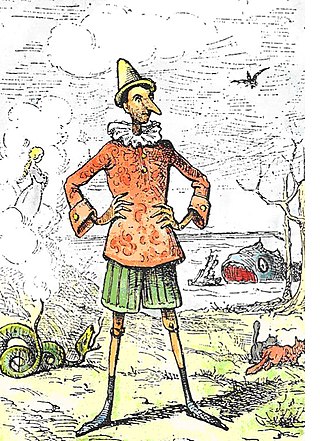
The Adventures of Pinocchio, commonly shortened to Pinocchio, is a children's fantasy novel by Italian author Carlo Collodi. It is about the mischievous adventures of an animated marionette named Pinocchio and his creator and father figure, a poor woodcarver named Geppetto.

Sir Anthony Hope Hawkins, better known as Anthony Hope, was a British novelist and playwright. He was a prolific writer, especially of adventure novels but he is remembered predominantly for only two books: The Prisoner of Zenda (1894) and its sequel Rupert of Hentzau (1898). These works, "minor classics" of English literature, are set in the contemporaneous fictional country of Ruritania and spawned the genre known as Ruritanian romance, books set in fictional European locales similar to the novels. Zenda has inspired many adaptations, most notably the 1937 Hollywood movie of the same name and the 1952 version.

A Study in Scarlet is an 1887 detective novel by British writer Arthur Conan Doyle. The story marks the first appearance of Sherlock Holmes and Dr. Watson, who would become the most famous detective duo in English literature. The book's title derives from a speech given by Holmes, a consulting detective, to his friend and chronicler Watson on the nature of his work, in which he describes the story's murder investigation as his "study in scarlet": "There's the scarlet thread of murder running through the colourless skein of life, and our duty is to unravel it, and isolate it, and expose every inch of it."
Amicus Productions was a British film production company, based at Shepperton Studios, England, active between 1962 and 1977. It was founded by American producers and screenwriters Milton Subotsky and Max Rosenberg.

The Leopard is a novel by Giuseppe Tomasi di Lampedusa that chronicles the changes in Sicilian life and society during the Risorgimento. Published posthumously in 1958 by Feltrinelli, after two rejections by the leading Italian publishing houses Mondadori and Einaudi, it became the top-selling novel in Italian history and is considered one of the most important novels in modern Italian literature. In 1959, it won Italy's highest award for fiction, the Strega Prize. In 2012, The Guardian named it as one of "the 10 best historical novels". The novel was made into an award-winning 1963 film of the same name, directed by Luchino Visconti and starring Burt Lancaster, Claudia Cardinale and Alain Delon.

Ethel Lilian Voynich was an Irish-born novelist and musician, and a supporter of several revolutionary causes. She was born in Cork, but grew up in Lancashire, England.

Michael James Radford is an English film director and screenwriter. He began his career as a documentary director and television comedy writer before transitioning into features in the early 1980s.
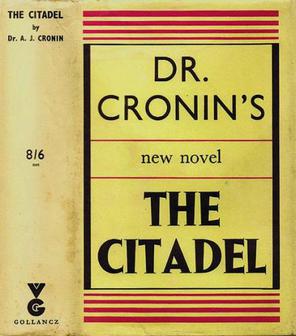
The Citadel is a novel by A. J. Cronin, first published in 1937, which was groundbreaking in its treatment of the contentious subject of medical ethics. It has been credited with laying the foundation in Britain for the introduction of the NHS a decade later.

Bordighera is a town and comune in the Province of Imperia, Liguria (Italy).
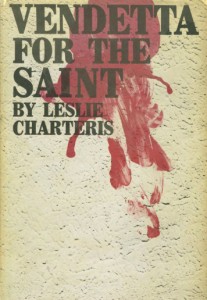
Vendetta for the Saint is a 1964 mystery novel featuring the character of Simon Templar, alias "The Saint". Vendetta for the Saint was the first full-length Saint novel published since The Saint Sees it Through, 18 years earlier. A television adaptation of the novel was released as a theatrical film, also entitled Vendetta for the Saint, in 1969.
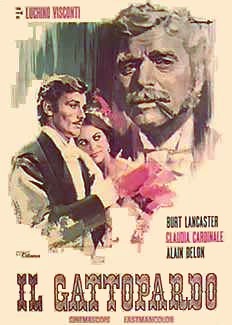
The Leopard is a 1963 epic historical drama film directed by Luchino Visconti. Written by Visconti, Suso Cecchi d'Amico, Enrico Medioli, Pasquale Festa Campanile, Massimo Franciosa, and an uncredited René Barjavel, the film is an adaptation of the 1958 novel of the same title by Giuseppe Tomasi di Lampedusa.

Giovanni Ruffini was an Italian writer and patriot of the early 19th century. He is chiefly known for having written the draft of the libretto of the opera Don Pasquale for its composer Gaetano Donizetti.
In the 20th century, and especially since the end of the Second World War, the received interpretation of Italian unification, the Risorgimento, has become the object of historical revisionism. The justifications offered for unification, the methods employed to realise it and the benefits supposedly accruing to unified Italy are frequent targets of the revisionists. Some schools have called the Risorgimento an imperialist or colonialist venture imposed by Savoy.
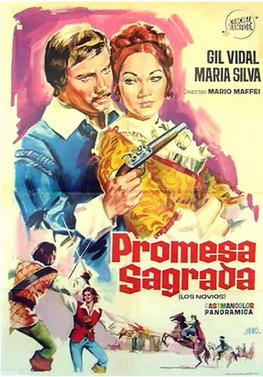
The Betrothed is a 1964 Italian-Spanish historical drama film directed by Mario Maffei and starring Gil Vidal, Maria Silva and Arturo Dominici. It is based on the 1827 novel The Betrothed by Alessandro Manzoni, one of three film adaptations made during the twentieth century.
The Betrothed is a 1923 Italian silent historical drama film directed by Mario Bonnard and starring Domenico Serra, Nini Dinelli and Emilia Vidali. It is an adaptation of the 1827 novel The Betrothed by Alessandro Manzoni.
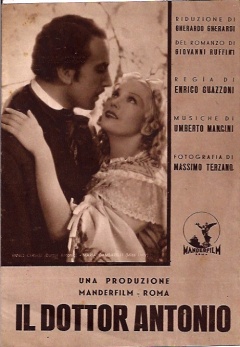
Doctor Antonio is a 1937 Italian historical drama film directed by Enrico Guazzoni and starring Ennio Cerlesi, Maria Gambarelli, and Lamberto Picasso. The film is an adaptation of the 1855 novel of the same title by Giovanni Ruffini set during the Risorgimento. It was shot at the Cinecittà Studios in Rome with location shooting on the island of Ischia off Naples. The film's sets were designed by the art director Gherardo Gherardi.
Doctor Antonio may refer to:
Doctor Antonio is a 1914 Italian silent historical film directed by Eleuterio Rodolfi and starring Hamilton Revelle, Fernanda Negri Pouget and Alfredo Bertone. It is an adaptation of the 1855 novel Doctor Antonio by Giovanni Ruffini. In the mid-nineteenth century an Italian revolutionary falls in love with a wealthy young Englishwoman.
Doctor Antonio is a 1954 Italian television series, based on the 1855 novel of the same title by Giovanni Ruffini. It aired in four parts on RAI, the state broadcaster that had launched the same year. It was the first literary adaptation to be broadcast on Italian television.
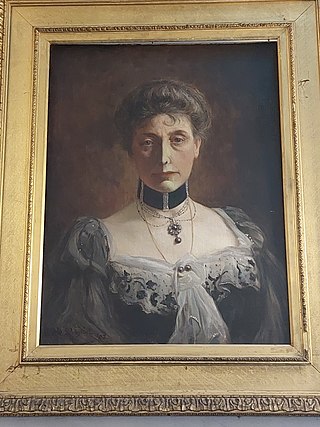
Tina Whitaker was an Italian writer and hostess.














